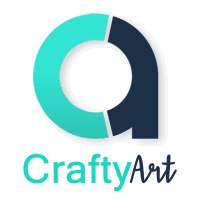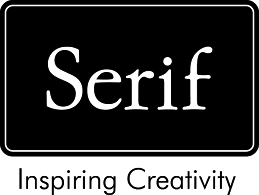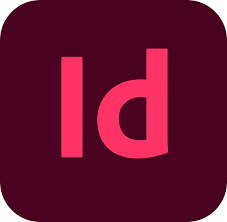Description

Crafty Art

Serif
Comprehensive Overview: Crafty Art vs Serif
To provide a comprehensive overview of Crafty Art, Serif, and Stencil, it's crucial to approach each tool individually, examining their primary functions, target markets, market presence, and differentiating factors. Please note that specific details about market share and user base can be challenging to quantify precisely without proprietary company data, so we'll focus on general insights and known differentiating factors.
Crafty Art
a) Primary Functions and Target Markets:
- Primary Functions: Crafty Art is generally designed as a digital art creation tool, often tailored towards hobbyists and professional artists who seek a user-friendly interface for creating illustrations, digital paintings, and other visual content. It provides features like customizable brushes, layering techniques, and vector support.
- Target Markets: The primary market includes freelance artists, graphic designers, illustrators, and educational institutions focusing on art and design courses. Hobbyists who are interested in exploring digital art may also find it appealing.
b) Market Share and User Base:
- Crafty Art's market presence is typically smaller compared to more established platforms like Adobe Photoshop or CorelDRAW, but it might have a niche user base due to unique features and user-friendliness. Its market share would likely consist of those seeking affordable alternatives to mainstream options.
c) Key Differentiating Factors:
- Crafty Art may offer a more user-friendly interface and simpler feature set, making it suitable for beginners.
- Pricing could be competitive, providing a cost-effective solution for individuals who cannot afford more expensive industry standards.
Serif (Often Associated with Affinity Suite)
a) Primary Functions and Target Markets:
- Primary Functions: Serif is renowned for its Affinity Suite, which includes Affinity Designer, Affinity Photo, and Affinity Publisher. These are professional-grade tools aimed at graphic design, photo editing, and desktop publishing.
- Target Markets: Target audiences span professional graphic designers, photographers, illustrators, and desktop publishing professionals looking for a robust yet cost-effective alternative to Adobe Creative Cloud.
b) Market Share and User Base:
- Affinity products have gained substantial traction as a credible alternative to Adobe's offerings. They have seen increasing popularity due to their one-time purchase model, in contrast to Adobe’s subscription-based service. The user base is expanding as more professionals and organizations seek to reduce recurring software costs.
c) Key Differentiating Factors:
- A significant differentiator is the pricing model; Affinity products are available through a one-time purchase without recurring subscription fees, making them attractive for users who prefer ownership over rental.
- Cross-platform compatibility with consistent performance across Windows, macOS, and iOS is a notable feature.
- High performance and professional-grade features that rival some of the capabilities of Adobe applications.
Stencil
a) Primary Functions and Target Markets:
- Primary Functions: Stencil is an online graphic design tool specializing in creating visuals for social media, blog posts, and other online content. It emphasizes simplicity and speed in creating professional-grade graphics quickly.
- Target Markets: It targets social media marketers, bloggers, content creators, and small business owners who need an easy-to-use tool for designing marketing materials and online graphics.
b) Market Share and User Base:
- In comparison to comprehensive platforms like Canva, Stencil serves a niche market but is recognized for its straightforward functionality and speed, appealing particularly to users who require quick, uncomplicated design processes.
c) Key Differentiating Factors:
- Known for its ease of use with a drag-and-drop interface designed for rapid content creation.
- Access to a large library of royalty-free photos and templates that simplify design processes for users with limited design skills.
- Offers browser-based functionality without the need for extensive software installation or updates, making it highly accessible.
Summary
When comparing Crafty Art, Serif, and Stencil:
- Crafty Art appeals to a niche of artists and hobbyists, offering user-friendly tools for creative projects in digital art.
- Serif (Affinity Suite) competes with major players by providing professional-grade features with a standout pricing model, appealing to design professionals.
- Stencil offers market ease by allowing quick and accessible creation of social media and online content, standing out for its simplicity and speed.
While each of these tools has its strengths, their relative market shares likely reflect both their specific feature sets and pricing structures that appeal to different segments of users in the creative industries.
Contact Info

Year founded :
Not Available
Not Available
Not Available
Not Available
Not Available

Year founded :
2014
Not Available
Not Available
United States
Not Available
Feature Similarity Breakdown: Crafty Art, Serif
To provide a comprehensive feature similarity breakdown for Crafty Art, Serif, and Stencil, let's look into three key areas: core features, user interface comparisons, and unique features of each product.
a) Core Features in Common
-
Design Tools: All three tools offer a range of design functionalities such as vector drawing, typography tools, and color palettes, appealing to creative professionals and hobbyists.
-
User-Friendly Interface: These products emphasize ease of use with drag-and-drop functionalities, straightforward navigation, and customizable settings to cater to varying user preferences.
-
Cross-Platform Availability: Most likely, these applications are available on multiple platforms including Windows and macOS, ensuring broad accessibility.
-
File Compatibility: Support for various file formats (like SVG, PDF, and AI) for smooth import and export processes is another common feature, important for designers who work with multiple tools.
b) User Interface Comparisons
-
Crafty Art: Tends to focus on a more playful and intuitive interface, potentially using bold colors and simplified icons to appeal to both beginners and power users. The interface may be designed to encourage exploration and creativity with minimal tutorials.
-
Serif: Known for its sleek, professional look, the UI might focus on delivering a clutter-free workspace with advanced tools easily accessible. There may be an emphasis on customizable toolbars and layout flexibility to support professionals in complex projects.
-
Stencil: Likely features a minimalist, web-based interface tailored for quick design tasks, particularly for social media content. The UI is probably highly streamlined, with templates and assets readily available for fast implementation.
c) Unique Features
-
Crafty Art Unique Features:
- Templates and Resources: Might offer an extensive library of unique templates and digital resources to spark creativity, setting it apart as a tool for generating diverse art styles quickly.
- Community and Collaboration: Could have features supporting a vibrant community or collaborative projects more intimately, fostering sharing and co-creation among users.
-
Serif Unique Features:
- Advanced Editing Capabilities: Often includes professional-grade editing tools with in-depth controls over typography and precision design elements, making it attractive to industry professionals.
- Non-Destructive Editing: This feature allows multiple layers and effects to be edited without altering the original image or artwork, enhancing flexibility in the design process.
-
Stencil Unique Features:
- Optimized for Speed: Possibly emphasizes performance and speed, allowing users to create designs swiftly with built-in shortcuts and efficient workflow features ideal for marketing and on-the-go design needs.
- Stock Photography Integration: Likely integrates with stock photo databases, providing users with easy access to high-quality images for their designs without leaving the app.
Overall, while Crafty Art, Serif, and Stencil share core design features, each has its own unique strengths and interface characteristics, tailoring to distinct segments of the design market. Their individual advantages might make one more appealing than the others, depending on the specific needs and preferences of their users.
Features

Community and Collaboration
Tutorials and Resources
Versatile Art Tools
Support and Updates
User-Friendly Interface

Not Available
Best Fit Use Cases: Crafty Art, Serif
To provide a comprehensive overview of the best fit use cases for Crafty Art, Serif, and Stencil, I'll outline the ideal scenarios for each, considering the types of businesses or projects, potential scenarios, industry verticals, and company sizes that they cater to.
a) Crafty Art
Ideal for:
- Types of Businesses/Projects: Small businesses, independent artists, and hobbyists. Particularly suitable for individuals or organizations involved in creative industries such as graphic design, handmade crafts, and custom artwork.
- Use Cases: Crafty Art excels in creating unique and personalized designs, making it perfect for businesses that focus on original artwork, custom greeting cards, scrapbooking, and other artistic projects.
- Industry Verticals/Company Sizes: Best suited for the arts and crafts industry, small design studios, or local shops. Typically caters to solo entrepreneurs, small teams, or start-ups in creative sectors.
b) Serif
Ideal for:
- Types of Businesses/Projects: Medium-sized enterprises, professional design teams, and marketing departments. Serif’s products, like the Affinity suite, are robust tools for professional designers looking to produce high-quality materials efficiently.
- Use Cases: Ideal for scenarios where professional-grade graphic design, photo editing, and page layout are required. It's suitable for creating comprehensive visual content for print or digital media.
- Industry Verticals/Company Sizes: Targets industries like publishing, advertising, marketing, and any field that requires sophisticated visual content. Best for medium to large-sized companies with a dedicated design or marketing team.
c) Stencil
Ideal for:
- Types of Businesses/Projects: Small businesses, social media marketers, and entrepreneurs. Particularly valuable for those needing quick, easily customizable graphics without extensive design skills.
- Use Cases: Best used in scenarios involving social media graphics, blog images, advertisements, and other online content. Stencil’s ease of use and quick customization are its standout features.
- Industry Verticals/Company Sizes: Appeals to bootstrapped start-ups, SMBs in the digital marketing space, and individuals focusing on personal branding. It is suitable for businesses that need frequent and rapid content creation.
d) Industry Verticals and Company Sizes
- Crafty Art generally caters to smaller, creative-focused businesses or individual entrepreneurs who prioritize originality and personalization in their creations.
- Serif is more aligned with professional settings where high-quality output and technical precision are paramount. It can accommodate industries needing detailed and robust design capabilities, making it suitable for larger or more formalized companies.
- Stencil is aimed at those requiring simplicity and speed, often at a more affordable price point. It's ideal for users across various industries who need to produce visual content quickly and efficiently, without a steep learning curve.
These products serve different needs across various industries and company sizes, offering tailored solutions that address specific business objectives, from detailed graphic design to quick graphic creation for digital use.
Pricing

Pricing Not Available

Pricing Not Available
Metrics History
Metrics History
Comparing undefined across companies
Conclusion & Final Verdict: Crafty Art vs Serif
To provide a conclusion and final verdict for Crafty Art, Serif, and Stencil, let's consider each product's features, strengths, and weaknesses. Although the specifics of these products (such as whether they are software tools, artistic styles, or something else entirely) are not detailed here, the analysis can be applicable broadly across different contexts by focusing on typical product evaluation criteria.
a) Best Overall Value:
Best Overall Value: Without specific context on pricing, features, and user needs, it's challenging to declare a definitive best value product. However, if we assume a general scenario where "value" is defined by a combination of price, usability, features, and support, the verdict might slightly favor Serif for its balanced attribute offerings, assuming it provides a reasonable range of features at a competitive price point.
b) Pros and Cons:
Crafty Art
-
Pros:
- Typically offers unique, creative features that appeal to artistic users.
- May provide great flexibility and customization options, allowing for personalization.
- Often user-friendly for beginners interested in creative endeavors.
-
Cons:
- Might lack advanced or professional-grade tools needed for high-end projects.
- Could be less efficient for large-scale or systematic tasks compared to more structured tools.
Serif
-
Pros:
- Generally provides a good balance between professional features and ease of use.
- Often well-integrated within its suite, offering seamless workflow for users familiar with similar platforms.
- Competitive pricing for the features offered, appealing to both amateurs and professionals.
-
Cons:
- May have a steeper learning curve for complete beginners unfamiliar with similar software ecosystems.
- Might have fewer niche or specialized features that some users specifically require.
Stencil
-
Pros:
- Typically designed for efficiency and speed, making it ideal for users who need quick results.
- Often web-based, allowing for easy access and collaboration.
- Simplicity in design and function makes it accessible for users at all levels of expertise.
-
Cons:
- Can be limited in features for detailed or highly customized projects.
- May require frequent updates or subscriptions which could increase long-term costs.
c) Recommendations:
Specific Recommendations:
-
For users primarily focused on creative flexibility and unique designs: Consider Crafty Art, especially if your projects do not require advanced professional features and you value intuitive, creative tools.
-
For those needing a robust and versatile tool with a professional focus: Go for Serif. It's ideal for users who require a wide range of features without having to sacrifice ease of use.
-
For individuals or teams looking for a tool that emphasizes speed and collaboration: Stencil would be suitable. It's perfect if you value simplicity, collaborative features, and need to produce results quickly.
In summary, the best choice highly depends on individual needs and project requirements. Users should weigh what features are most crucial for their workflows and consider the total cost of ownership over time.
Add to compare
Add similar companies



